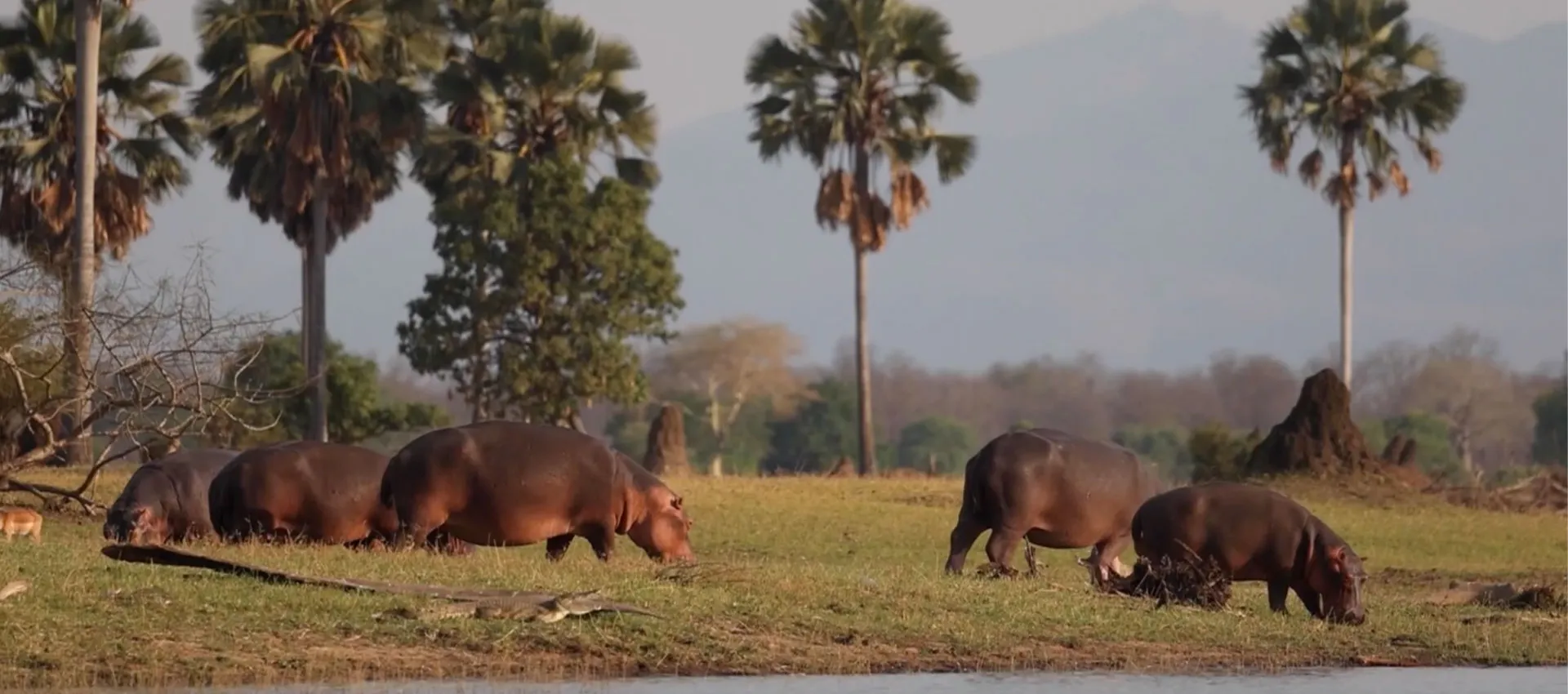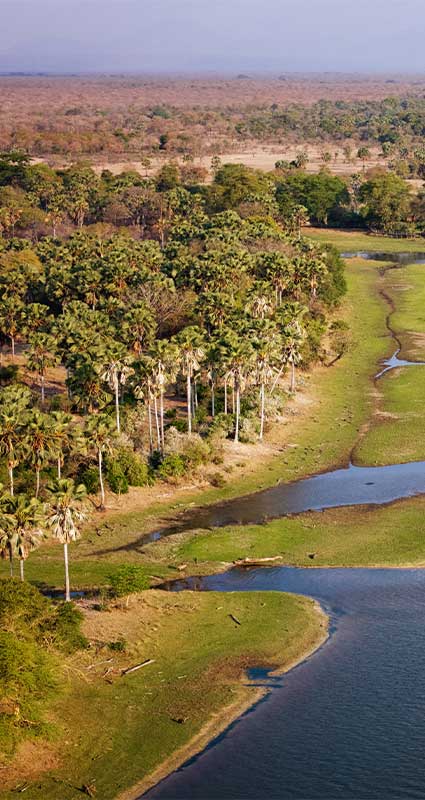SAFARI CAMPS for responsible travellers
The preferred booking platform for lodges & bush camps that offer tangible, measurable benefits for conservation & communities
The 548km2 (54,800 hectare) Liwonde National Park stretches along the banks of the Shire River in Malawi - just south of Lake Malombe and Lake Malawi. Verdant landscapes consist of riverine floodplains, woodlands, and arid savannas. This is a great comeback story - how a sustainable Big-5 safari destination was reclaimed from a poached wasteland.
READ MORE about Liwonde National Park
Expert tip: Expect some of the best river-based viewing in Africa of elephants, crocodiles and hippos
Information about Liwonde
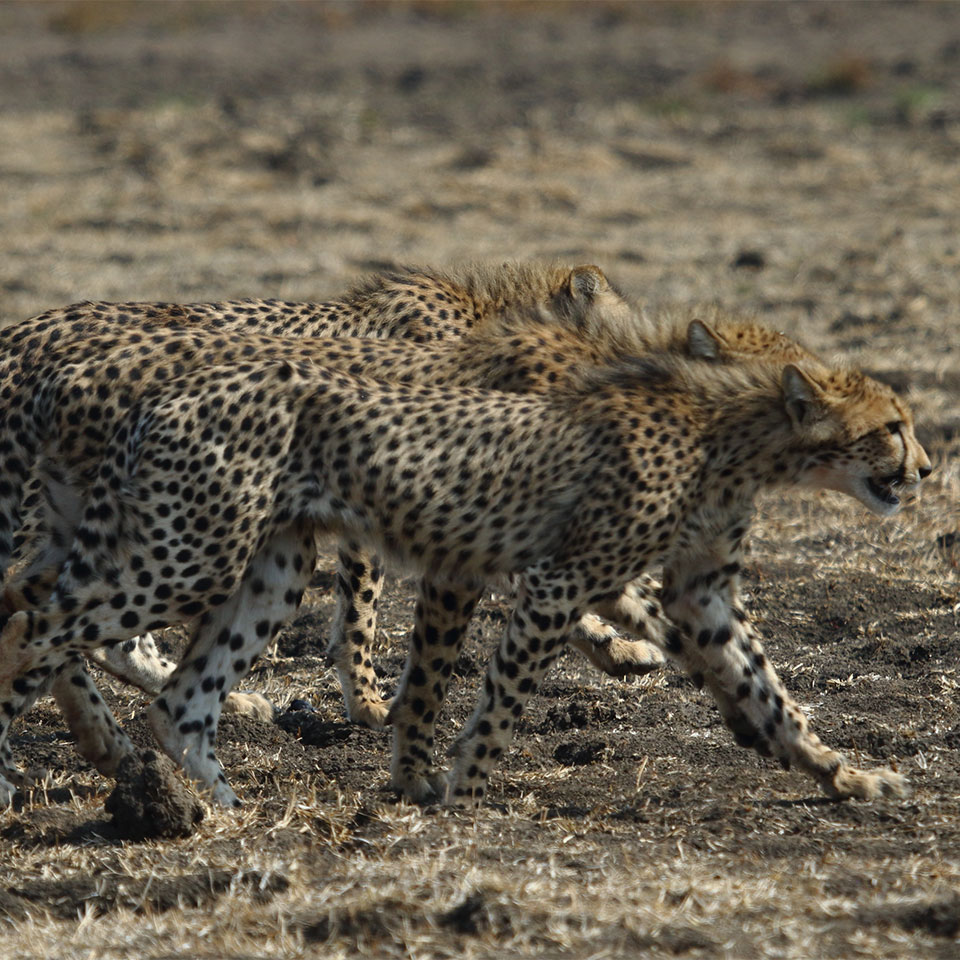
Liwonde wildlife
Big 5 - black rhino, elephant, lion, leopard (rare) and buffalo.
Cheetah, African wild dog (painted wolf), hyena, sable and roan antelope, hippopotamus, crocodile, Lichtenstein’s hartebeest and eland and commonly seen species such as warthog, impala, zebra, wildebeest, waterbuck, common duiker, kudu and bushbuck.
Smaller species include side-striped jackal, honey badger, aardvark, pangolin and several species of mongoose.
Birds - over 460 species recorded, including Lillian’s lovebird, Pel’s fishing owl, Boehm’s bee-eater, and Livingstone’s flycatcher.
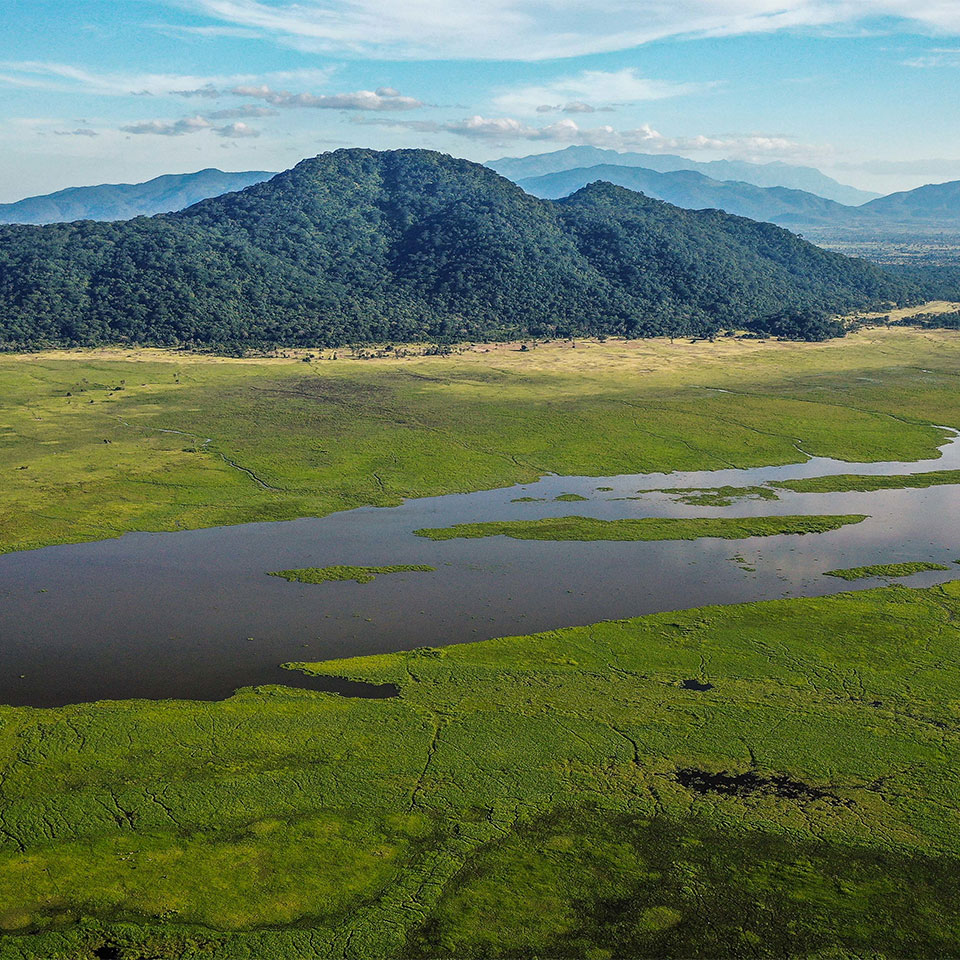
Liwonde seasons & landscapes
Open all year round;
Rainy season - November to March - hot and humid. The bushveld is green and thick, making game viewing more difficult. Many species have babies (easy targets for predators), and migrating birds have arrived;
Dry season - April to October- milder temperatures (but September and October can be very hot) and little or no rain. The bushveld is brown and dry, making it easier to see wildlife.
The vast Shire River and its tributaries form the beating heart of this thriving park, with Borassus palm-studded floodplains, thick reedbeds and towering riverine trees. Away from the river, mopane woodlands form natural cathedrals overhead, interspersed with candelabra euphorbias and ancient baobabs.
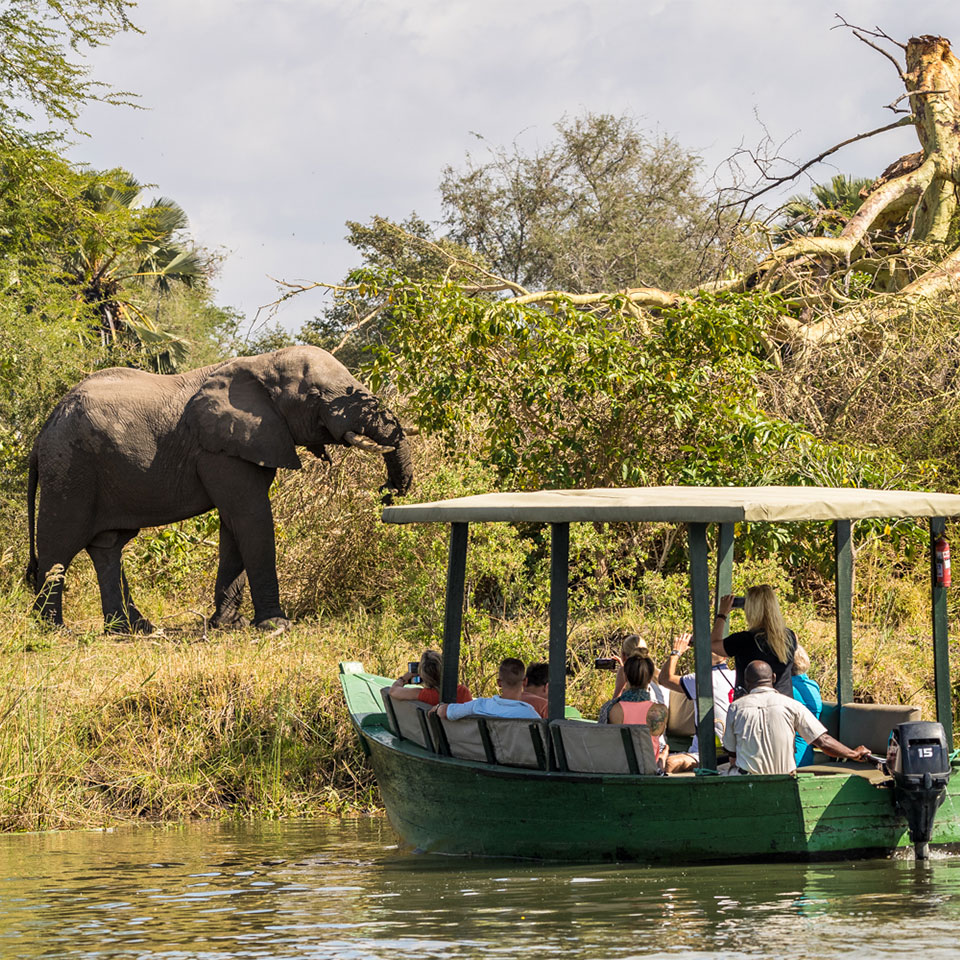
What to do in Liwonde
Liwonde offers a variety of activities, including:
• morning and afternoon game drives;
• boat excursions on the Shire River (subject to river conditions);
• bush/bird walk;
• helicopter flip;
• community visit.
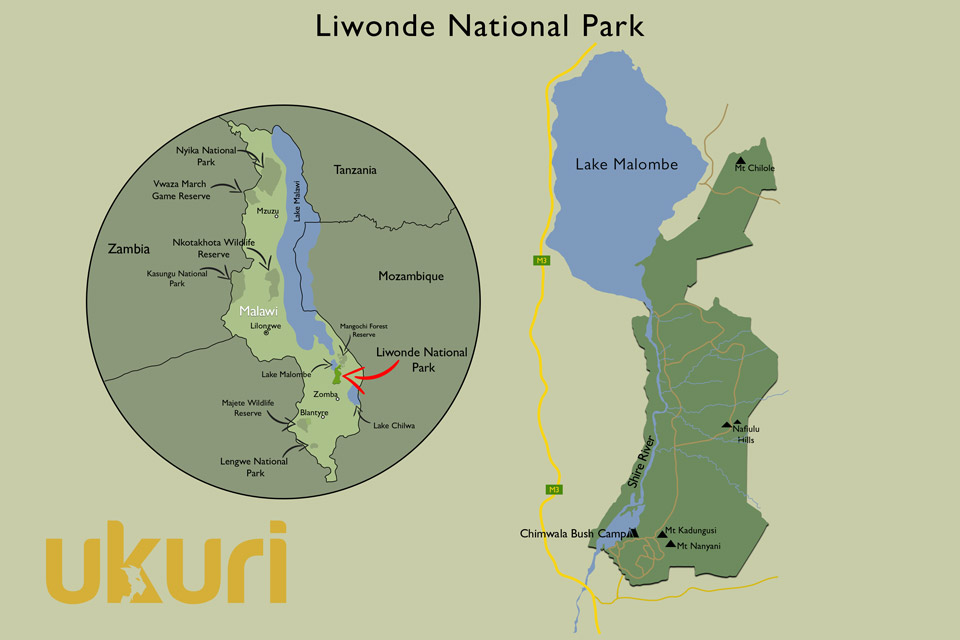
How to get to Liwonde
Nearest city + major airport: Blantyre 125km / up to 3 hours by road.
By road: Vehicles are available for hire in Blantyre. From Blantyre, take the M3 road to Liwonde town. In Liwonde town turn right onto the S131 road before turning left on the entrance road to the park. Journey length 2.5-3 hours.
By air: Liwonde has an airstrip, and charters can be booked with a local provider. Prior landing permission is required.

Health essentials
Malaria area: Yes
Liwonde is a malaria area. The biggest threat is during the rainy season (November to March), but appropriate precautions are advised throughout the year. Cover your arms, legs and feet from dusk to dawn and use mosquito repellent. Please consult your travel doctor about malaria prophylaxis.
Yellow fever area: No
Malawi is not a yellow fever area. Vaccination is required for travellers arriving from countries with a risk for yellow fever virus transmission. Please consult your travel doctor before travelling for relevant updates.
Tsetse flies: Yes
Tsetse flies can be a problem in certain parts of the park. Wear light-coloured clothes and make use of insect repellents to avoid being stung.
Water
We advise against drinking tap water unless it is boiled or filtered. Bottled water is widely available in Malawi.
Medical emergencies
Liwonde is a remote area - please ensure you have evacuation insurance in case of medical emergencies. African Parks utilises the following emergency evacuation service: SATIB24 (Nyasa Express Charter = Air Ambulance).
✔️ Vested communities ✔️ Responsible & sustainable
100% of tourism revenue earned by African Parks goes to conservation and local communities
Your safari to Liwonde will make a difference for local people
Visiting the African Parks camps in Liwonde is the most direct way to support local communities because these camps help boost:
protection against human-wildlife conflict for people living near Liwonde via an electric perimeter fence;
the local economy by creating jobs and economic opportunities via tourism and supporting small enterprises such as beekeeping, moringa plantations, indigenous tree nurseries and chilli farming;
health and well-being by supporting local health centres;
environmental education via the construction of school buildings, driving literacy, providing scholarships and hosting children in the park.
READ ABOUT the many African Parks community-based projects at Liwonde
Your safari to Liwonde will help conservation
Liwonde's journey is an incredible one - a reserve pulled from the brink of destruction and catapulted towards a bright future as one of Malawi’s key protected areas and an exceptional Big 5 safari destination. The comeback story commenced in 2015 when African Parks assumed management - in partnership with the Department of National Parks and Wildlife - of a barren landscape with more snares than large animals. Liwonde is now a thriving Big 5 wildlife haven and a popular tourist drawcard.
READ ABOUT
Information about Malawi
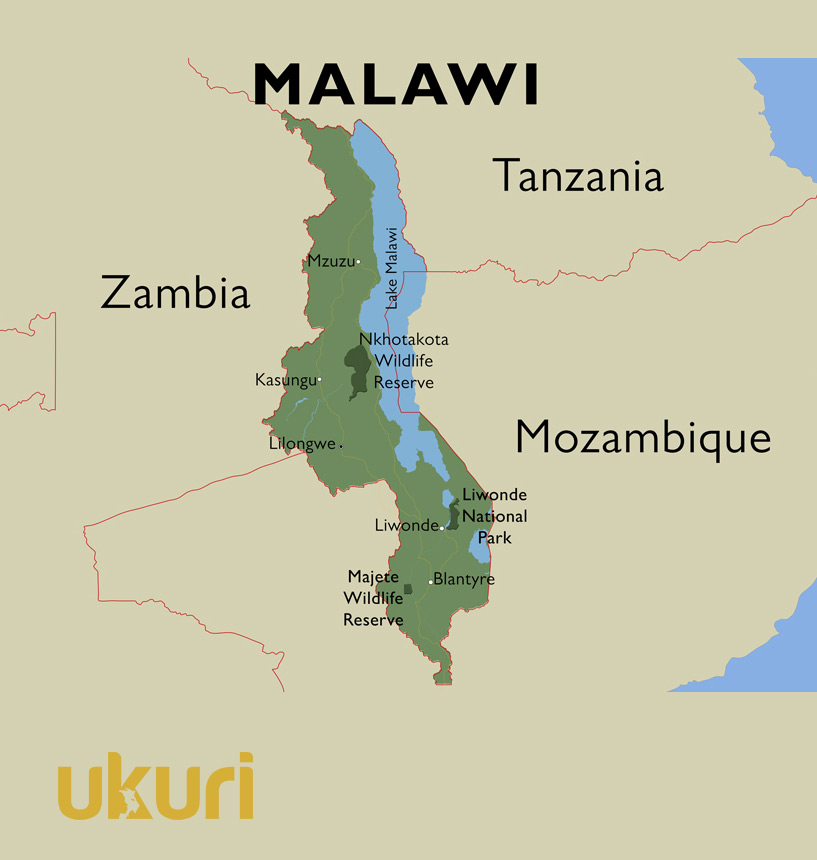
Key Malawi facts + map
Tourist hubs Lilongwe (capital city) + Blantyre.
Languages English + Chichewa (learn a few key phrases).
Time zone GMT + 2 hours.
Currency Malawian Kwacha. Exchange bureaus are available in Lilongwe and Blantyre. Credit Card facilities are increasingly available but still not common. ATMs are available in most major towns around Malawi.
Visas Enter your details here for visa and other requirements.
Plugs Type G plugs (three rectangular pins in a triangular pattern). 230V and 50Hz.
Power Malawi is subject to regular power failures - pack a torch and headlamp.
Mobile phones SIM cards can be purchased cheaply in Lilongwe, Blantyre and large towns. Malawi has very good phone coverage and internet coverage BUT internet speed is very slow.
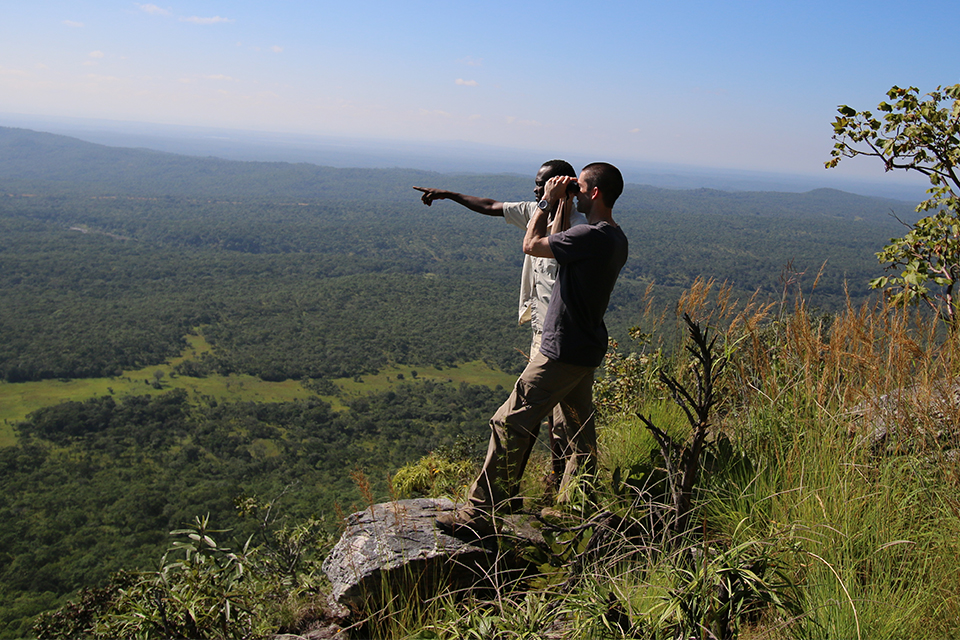
Travel highlights
Lake Malawi
Lake Malawi is the fifth largest freshwater lake in the world and a popular inland beach destination as a finale to top off that exhilarating wildlife safari.
Majete Wildlife Reserve & Liwonde National Park
Majete and Liwonde are two of Africa’s greatest conservation success stories and premier Big-5 safari destinations for responsible travellers.
Nkhotakota Wildlife Reserve
Nkhotakota Wildlife Reserve is the oldest and largest reserve in Malawi and is on the way to becoming the wildlife haven it used to be.
Nyika Plateau & National Park
Nyika National Park is Malawi's largest national park and is popular with birdwatchers, wilderness hikers and mountain bikers.
